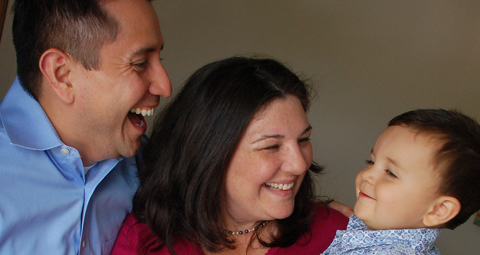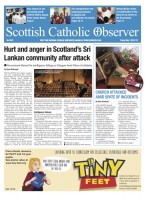April 5 | ![]() 0 COMMENTS
0 COMMENTS ![]() print
print

Life should not be a constant stuggle: leisure and rest find great support in Catholic tradition
Brandon McGinley chooses the joys of family over leisurely old age
When my mind wanders during the day, it almost always ends up in the same place: a breezy, ocean-front apartment.
I’m sitting in a comfortable and charmingly tacky lounge chair, and there’s a glass of wine resting on a table next to me.
I hear and smell the salty waves as I read a book—some work of philosophical or spiritual genius that I should have read decades earlier. My wife is here, too, with her wine and her book and her serenity.
We are retired, you see, and we have nothing to worry about except the weather forecast and dinner reservations and… “Daddy! Daddy! Teresa flushed my poop, Daddy!”
We’ve just had our fourth baby in less than six years, so it’s fitting that my daydreams should fixate on rest and leisure.
Undeniably appealing
The idea of a time when our duties to these little barbarians have expired, when we can relax without fear of interruption, when our life will truly be our own—this is the dominant view of retirement that my daydreams tap into. The appeal is undeniable.
But this view is also a mirage—and not only because advancing life expectancies coupled with declining wages means more and more people are going to have to work longer and longer into their dotage.
It’s a mirage because we are never free from our duties to others, because we are always at the whim of emergencies that supersede our leisure, because even in old age our lives are never our own.
There is a way of thinking about our earthly lives, popular in some corners of Catholicism, that strips everything down to that one poignant phrase in the Salve Regina: “Vale of tears.”
Anything good and pleasant that happens to us is regarded as an exception to the rule; anything that makes our challenges easier to bear is regarded as something like cheating.
Life is a perpetual clench-jawed struggle, and we deserve nothing better — to think or expect otherwise is vanity. This is not the view I’m endorsing here.
Catholic tradition
Leisure not only finds great support in Catholic tradition; properly understood, it is a distinctly Catholic concept.
Life-as-constant-drudgery, on the other hand, is a Calvinist deformation.
While the work of medieval peasants in Catholic Europe was hard, they actually worked fewer hours than modern people, and their lives were punctuated by regular feasts and jubilees.
Rest was, and is, part of a humane society — and there is meant to be more of it for the weaker and frailer.
The ‘good life’
Rest and leisure, though, are different from the radical freedom we often associate with the ideal of ‘the good life.’
The original notion that the direction of responsibility shifts in retirement from our duties to society to society’s duties to us is exactly right, but since we define the good life as radical freedom this notion has been expanded in the popular mind to mean the end of all unchosen duties.
The good life, that is, is the untethered life; that is what we’re taught to look forward to. But there is no such thing.
Twilight dreams
As much as I might daydream about oceans and condos and chardonnays, that will be at most a small part — maybe a couple weeks a year, and that only if we are lucky enough to be able to afford it — of our twilight years.
In all likelihood we will have grandchildren to help with — and we’ll want to be with them! And we will be able to help our children in other ways, some material (family dinners or gifts, not just of goods or money but of time and presence) and some spiritual (prayer, or advice, or celebration, or mourning).
And we may, God willing, still have an older generation to help care for.
Human obligations
These are all obligations that come simply with being human; they don’t go away with age, but only change.
It’s beautiful and daunting: while the labour of earning will, hopefully, one day justly cease, the labour of relationships — more important in the heavenly economy even if not so valued in the earthly one — will be with us until our last breath.
The rest of seclusion is not ours to enjoy in this life — and it’s not all it’s cracked up to be, anyway.
The rest of Christ — which is the rest of communion, of perfect and peaceful and perpetual relationship with God and His saints — is what we strive for, and what we were made for.










